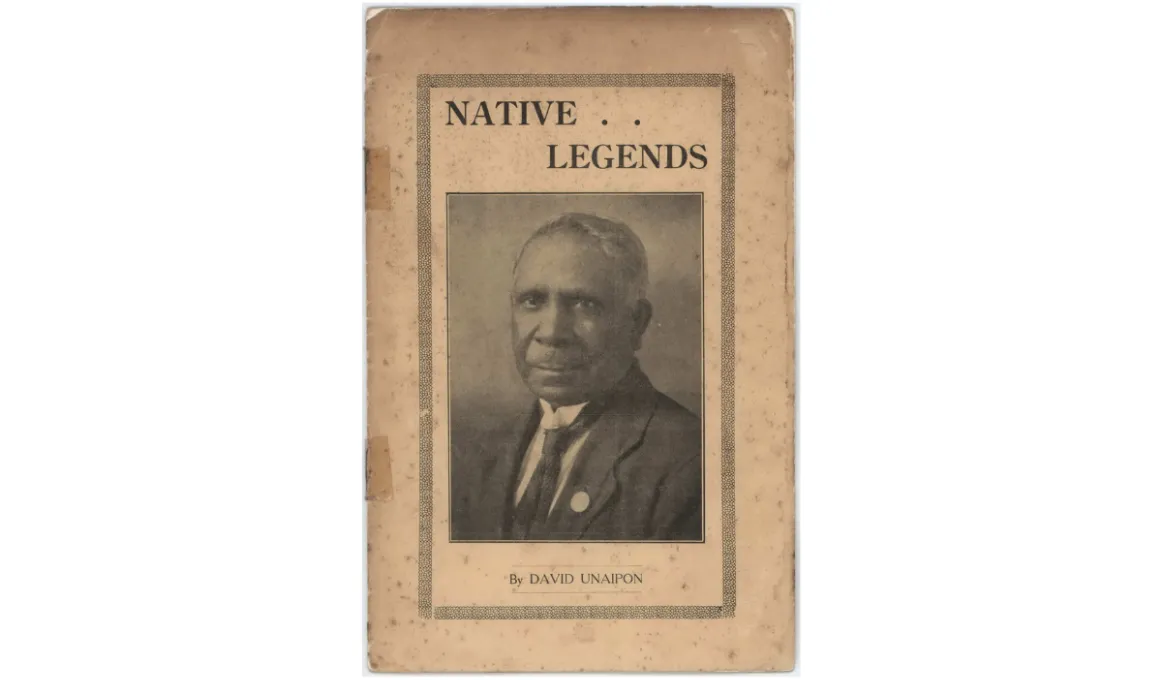David Unaipon: Writer and Trailblazer

September 7 is Indigenous Literacy Day – a yearly celebration of Aboriginal and Torres Strait Islander stories and languages. To mark the day, we’re taking a look at David Unaipon: Australia’s first published Indigenous writer.
Born in 1872 in South Australia, Ngarrindjeri man David Unaipon remains a well-known figure from Australian history – you might recognise him from the $50 note! He was also the first published Indigenous Australian.
Unaipon’s teachers and community noted his exceptional intelligence from an early age and after leaving school at 13 to work as a servant, his employer encouraged his ongoing interest in literature, music and science. Unaipon later became a bookkeeper and preacher, as well as developing designs for a wide variety of inventions. In 1909 he patented an improved sheep-shearing device, which appears with him on the $50 note.
In the 1920s, Unaipon accepted a commission by the University of Adelaide to collect Aboriginal stories from around SA. He became the first published Indigenous Australian author in 1929 with the release of his book, Native Legends.
However, the rights to another manuscript Unaipon had sent to Angus and Robertson were sold without his permission to William Ramsay Smith – a friend of Unaipon. In 1930, the work was published in London as Myths and Legends of the Australian Aboriginals, without acknowledging Unaipon.
David Unaipon never publically complained about the plagiarism and died in 1967. However, the original manuscript was re-discovered in the collection of the State Library of New South Wales in 1995, identifying Unaipon as the original author of the book. It was republished under David Unaipon’s name, using the title he had originally given it: Legendary Tales of the Australian Aborigines.
An annual award, the David Unaipon Award, was established 1988 in his honour. Awarded to the best works of the year by unpublished Aboriginal and Torres Strait Islander authors, the prize has helped to boost the careers of Indigenous writers such as Ruth Hegarty, Philip McLaren and Larissa Behrendt – and ensures that Unaipon’s literary legacy will continue to live on.